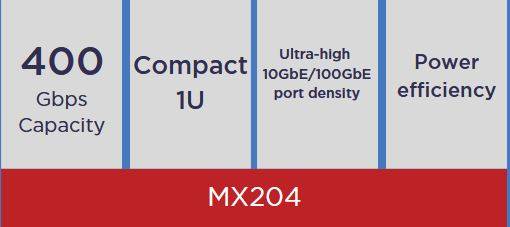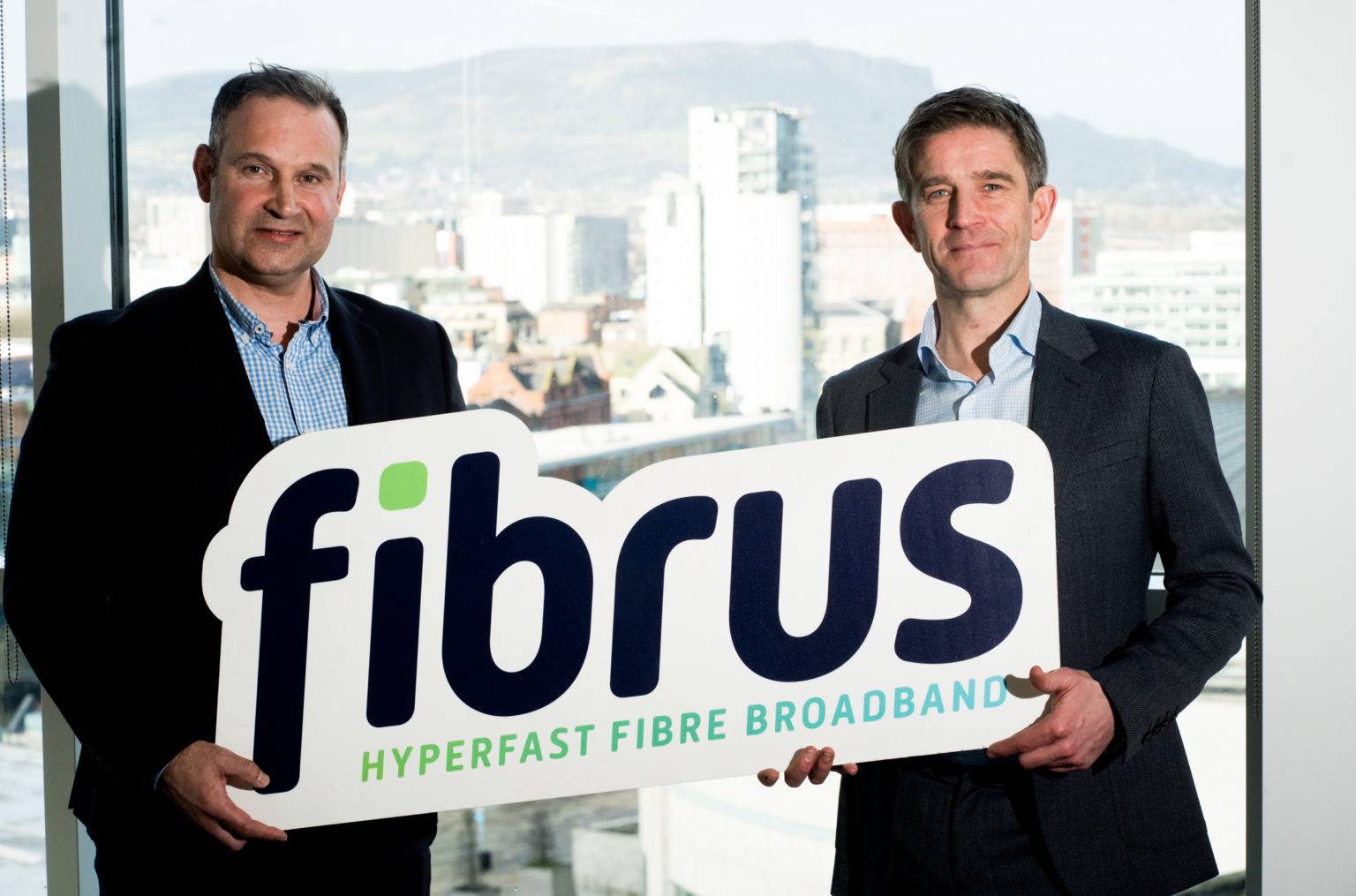Client
- Fibrus Networks
Technology
- Juniper Networks’ MX480s, ideal for high density environments through 9 Tbps
- Juniper Networks’ MX204, a universal routing platform supporting high density 10 GbE, 40 GbE and 100 GbE interfaces
- Juniper Networks’ ACX710 multi-service access routers for core MPLS services
- Red Hat network automation based on the Ansible platform
Project Outcomes
- Supports acceleration of the digital economy in Northern Ireland
- Provides high-speed, high-performance full fibre connectivity with speeds of up to 1 Gbps to homes and businesses throughout the province
- Future-proofs core and access networks protecting technology investment
- Reduces IT administration and maintenance costs thanks to Ansible network automation and Juniper’s Self-Driving Network™
Overview
Fibrus Networks is an exciting new telecommunications provider seeking to transform the digital infrastructure of rural and regional Northern Ireland by bringing full fibre broadband to homes and businesses in these towns and villages.
The company was founded and launched in September 2018 by Conal Henry (Chair) and Dominic Kearns (CEO) by securing the backing of Infracapital (M&G Investments) in July 2019.
Having built, operated and commercialised fibre networks throughout the UK and Ireland, the senior management team have combined their experience, to focus on delivering an unrivalled service in Northern Ireland.
Unlike traditional service providers with slower copper networks, Fibrus is a “Full Fibre” broadband company meaning that it only uses a full fibre optic cable all the way to the premises. Rollout is well underway and the network is seen as a truly transformational move to accelerate the digitisation of the Northern Ireland economy.
Business Challenge
With several high profile contract wins involving significant investment and an ambitious growth strategy driven from the top, it was clear that Fibrus had to keep pace with that growth trajectory in terms of its own technology investment.
The company’s commitment to provide full fibre meant that it required a new core network to complement its existing one, with the capacity and speed to deliver on that promise.
The company went to market to source that network core capable of delivering 100 Gbps speeds and an access network to deliver ‘last mile’ fibre-based connectivity to homes and businesses throughout the province.
An existing relationship with some key personnel and experience of having worked with Agile Networks on previous projects made its selection as technology partner easy.
The project rollout started in earnest.
Next Generation Core Network with Future-Proofing
The project commenced with a full network design engagement, involving a discovery exercise between both technical teams. A series of consultations followed which resulted in a high level network design, meeting the specifications set down by Shane Haslem, chief operating officer with Fibrus.
The Fibrus internal network core consists of a number of Juniper Networks MX480s, located in London and Northern Ireland. The MX480 is ideal for high density environments and scales through 9 Tbps with support for 15 x 400GbE interfaces and 75 x 100GbE, thereby future-proofing Fibrus’ technology investment for years to come.
Border routing capability is provided by the MX204s providing edge connectivity with a capacity of up to 400 Gbps. Its ultra-high density, compact form factor and power efficiency positions it as a very popular ‘workhorse’ for medium-sized service providers in Ireland and beyond.
Finally, a number of ACX710 multiservice access routers were deployed allowing core MPLS services to be extended further out into the network edge.
Technology at a Glance
Juniper Networks' MX204
The SDN-ready MX204 Universal Routing Platform is a cloud-grade routing platform that offers ultra-high density and throughput in a space- and power-optimised package. The MX204 addresses the emerging edge and metro Ethernet networking needs of service providers, mobile, web-scale operators, and MSOs by delivering 400 Gbps of throughput in support of high-density 10GbE, 40GbE, and 100GbE interfaces—all in just one rack unit.
Powered by Junos OS and the programmable Trio chipset, the MX204 supports a comprehensive suite of routing, switching, security, and service features that are available in large MX Series platforms, including support for automation and telemetry capabilities that serve as the foundation for the future Self-Driving Network™.

Additionally, the MX204 supports the stringent timing and synchronisation requirements of mobile and financial services.

Full Fibre Access Network
The GPON access network, based on Nokia technology integrates with the Juniper core and rollout involves deploying OLT devices at 165 streetside cabinets across the province. This ‘last mile’ connectivity facilitates the delivery of full FTTH with speeds of up to 1 Gbps for individual premises.
Agile Networks’ roadside crews, in teams of two, commenced the deployment during the Covid pandemic but with adherence to health and safety protocols were able to continue the rollout with no disruption to the overall schedule.
They are expecting to complete a large proportion of the Northern Ireland sites in 2022.
Network Automation
Based on the Red Hat Ansible Platform
To accelerate deployment of the network core and reduce ongoing network maintenance overheads, Agile Networks built a complete prototype of the Fibrus network in its virtual lab environment.
Here, every virtual node ran the exact version of Junos OS and had the exact configuration as the corresponding device in the production deployment. Every configuration has been generated with Ansible, which yields a number of advantages:
- configuration standards conformance
- elimination of human errors
- after the initial investment of time and effort, it is now much easier to make configuration changes or implement a new feature across the whole network.
All Ansible files are version controlled in git which allows Agile to easily track changes (as well as who made the change) and even experiment with configuration features as they always have the option of reverting to a known working configuration. It is worth noting that the Ansible setup is used to generate configuration for both the production network as well as the virtual lab environment.
Finally, the team also used Ansible for building and configuring all Virtual Machines supporting the Fibrus network: DNS, Radius and Syslog servers to name a few.

Business and Technical Objectives Achieved
Fibrus approached Agile Networks with very specific business and technical objectives. And through close collaboration and flexibility on both sides, those objectives have been achieved.
Shane Haslem and his team view this collaboration as a ‘big win’ in that Agile Networks have been able to fill a technical skills gap that existed in Fibrus at the time. And being able to provide a turnkey solution across the service lifecycle from network design right through to on-site deployment has proved to be compelling.
Total cost of ownership also featured strongly as an overarching design principle. Besides future-proofing the network infrastructure, the Agile team also configured network automation scripts based on Ansible technology.
This automates standardised router configurations and allows new features to be pushed out to all devices on the network quickly and easily. This low TCO delivers real cost benefits to Fibrus in terms of reduced IT administration and maintenance costs.
Fibrus is continuing its fibre network rollout at pace and this will directly promote rapid acceleration of the digital economy in Northern Ireland.


Pic l-r: Shane Haslem, Chief Operating Officer, Fibrus and Michael Kinsella, Sector Director, Service Provider, Agile Networks
Project Outcomes
- Supports acceleration of the digital economy in Northern Ireland
- Provides high-speed, high-performance full fibre connectivity with speeds of up to 1 Gbps to homes and businesses throughout the province
- Future-proofs core and access networks protecting technology investment
- Reduces IT administration and maintenance costs thanks to Ansible network automation and Juniper’s Self-Driving Network™

